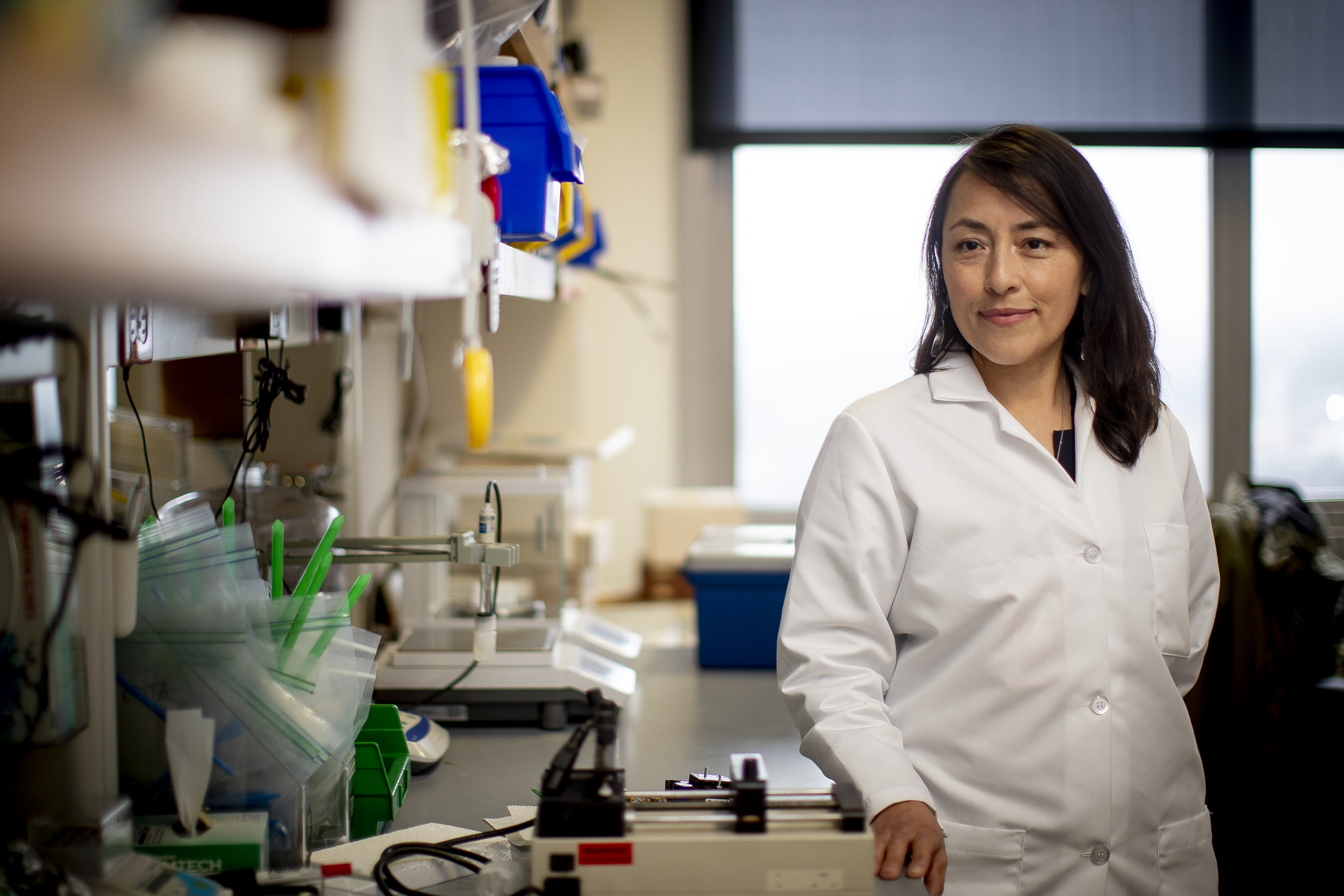When Ines Velazquez Quesada, a bioengineering postdoctoral fellow, first learned that she received the METAvivor’s Metastatic Breast Cancer Early Career Research Grant Award, she did a double-take.
“I had to read it three, four times, then one week after I kept reading just to make sure it was true,” Velazquez Quesada said.
Velazquez Quesada’s proposal, titled “Impact of the neuron-breast cancer cell interactions on the growth and survival of brain metastasis” is part of her research on metastatic breast cancer. The early investigator award will support two years of research.
Breast cancer metastasis occurs when cancer cells migrate from the breast to different parts of the body and form new tumors. Some breast cancer cells migrate and grow in the brain, forming tumors that are difficult to remove.
Her research has two primary goals: analyzing how interactions between breast-to-brain metastasis cells and neurons affect breast-to-brain metastasis cell proliferation, survival and migration, and understanding the role of synaptic cell adhesion molecules in breast cancer-neuron synapses.
“Our hypothesis is that by blocking the interaction between the cancer cells and the neurons, we can actually decrease the number of metastases in the brain, leading to higher survival rates,” Velazquez Quesada said.
She is working as a postdoctoral fellow in Dr. Bojana Gligorijevic’s lab, which uses microscopy techniques combined with cellular biology and microfabrication to understand the mechanisms of tumor cell metastasis.
“Cancer is a really complex topic and even if we had a lot of advances so far, we don't have a clear understanding in so many small details and it’s still a mystery for me in some key aspects, so I want to keep working on that,” Velazquez Quesada said.
Before achieving a grant award in the College of Engineering’s Bioengineering Department, Velazquez Quesada, who has been working in cancer research for more than 10 years, traveled the world to study and practice her work.
In 2013, Velazquez Quesada graduated from a Ph.D. program in France where she studied molecular and cellular biology through a fellowship. Then, she headed back to her home country Mexico to apply her doctoral skill set and work in the pre-clinical validation of anti-cancer drugs.
In 2020, Velazquez Quesada moved to the United States where she currently works in Dr. Bojana Gligorijevic’s lab.
Velazquez Quesada connected with Gligorijevic in 2019 when she was searching for a lab that worked in a 3D environment. She was used to 2D cellular research, but the behaviors of cells in 2D and 3D are completely different, and 3D mimics what happens in the human body.
“Dr. Gligorijevic is one of the experts in 3D culture and animal models, so I contacted her to know if she had a space for me and now I am finishing here,” she said.
Velazquez Quesada’s topic in the lab is trying to understand the interactions between neurons and cancer cells, which led to her project about brain metastasis, but there are other projects developed in the lab sharing a common theme.
“All the projects in the lab are trying to understand how extrinsic or intrinsic factors affect the migration or the invasion of cancer cells, resulting in more or less metastasis,” she said.
Velazquez Quesada is a senior postdoc in the lab, and she spends time with other members of the lab teaching and training undergraduate students in specific tasks.
Once a week, she also heads to Fox Chase Cancer Center where she collaborates with Dr. Edna Cukierman’s lab in the Cancer Signaling and Microenvironment Program to further discuss her project and implement additional cancer research techniques, such as single cell sequencing.
Dr. Zeng-jie Yang, a professor at FCCC, and Dr. Anna Moore, a professor in Temple’s Biology Department, also contribute to Velazquez Quesada’s cancer research. Having contributions from different research specialties can offer different perspectives and speed up the research, she said.
Moving forward, Velazquez Quesada plans to continue devoting her career to cancer research. If she doesn’t stay in the United States, she hopes to work again in Europe one day.
“I like it a lot,” she said. “There are so many things to learn, and I definitely like the topic. You have to be open to whatever interesting questions you find.”

